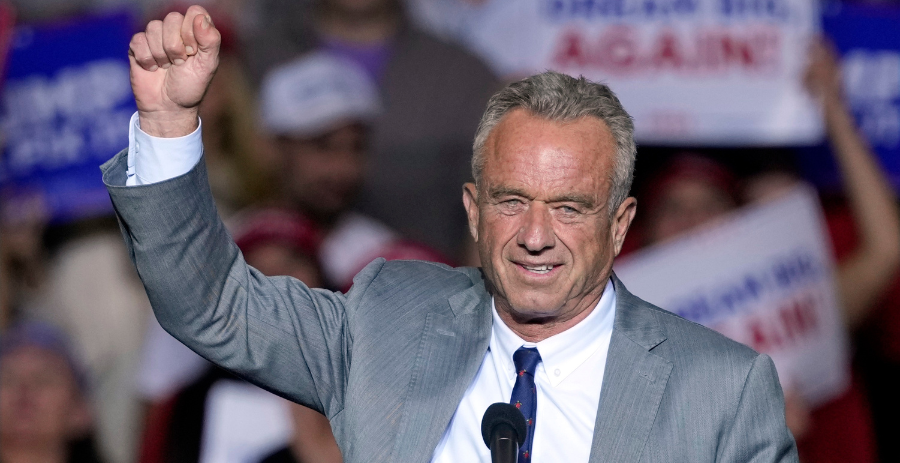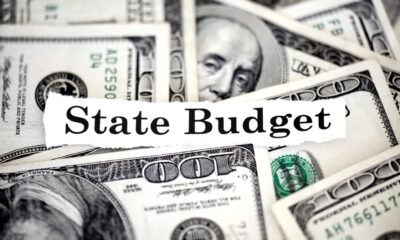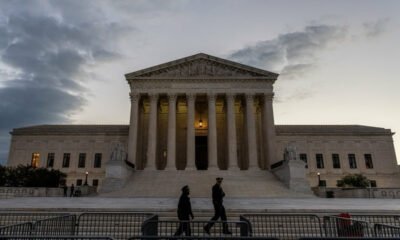arizona
Trump’s Team Takes Flight to Arizona for High-Stakes Talks on Immigration and Health

On Tuesday, two notable figures from the Trump administration will visit Arizona to promote key policies and support ongoing legislative efforts. Tom Homan, appointed as the president’s “border czar,” is scheduled to address a joint session of the House and Senate.
This visit follows the House Republicans’ approval of a contentious bill that mandates state and local agencies to collaborate with federal immigration authorities. However, its fate is uncertain as Governor Katie Hobbs has consistently vetoed legislation aimed at involving the state in immigration law enforcement.
Meanwhile, Health and Human Services Secretary Robert F. Kennedy Jr. will discuss urgent initiatives aimed at altering state laws under the banner of public health. His press conference will coincide with the expected final approval of a measure banning certain “ultra-processed foods” from schools, targeting items available in cafeterias and vending machines.
Republican Rep. Leo Biasiucci, the architect of HB2164, has identified specific substances that would be banned, including potassium bromate and several artificial food colorings. This legislation aligns with Kennedy’s broader goal of eliminating artificial dyes from the food supply, as he posits that such additives pose significant public health risks.
Earlier this year, federal officials announced the ban on Red #2 due to its cancer risk, though the new rules won’t take effect until 2027. Kennedy’s press conference is anticipated to also cover HB2165, concerning the federal Supplemental Nutrition Assistance Program (SNAP), which governs eligible food purchases.
HB2165, also sponsored by Biasiucci, requests a waiver to restrict SNAP benefits for the purchase of sodas, emphasizing the need for nutritional guidelines in food assistance programs. He criticized the current program as having strayed from its original intent, leading to unrestricted purchases with food stamps.
Initially, Biasiucci sought to broaden the ban to include candy, but faced challenges in defining boundaries between candy and nutrition bars. The revised measure currently focuses strictly on sodas, including sugar-free options, underscoring a push for nutritional value in SNAP spending.
Kennedy’s advocacy extends nationally, as he encourages states to seek waivers to eliminate soda purchases through SNAP. Nonetheless, the program’s administration lies with the U.S. Department of Agriculture, creating potential legal complexities regarding any amendments to purchasing guidelines.
Homan’s upcoming address follows Monday’s preliminary approval of SB1164, which aims to enforce stricter cooperation between state agencies and federal immigration authorities. The bill obligates the attorney general to investigate complaints related to non-compliance with federal immigration laws.
Proponents assert the bill prioritizes public safety, while critics express concern about its potential impact on vulnerable communities. House Minority Leader Oscar De Los Santos highlighted the fear it could instill among undocumented students, suggesting that the policy contradicts Arizona’s values.
In contrast, Speaker Steve Montenegro defended the bill, labeling it as essential for enforcing immigration laws. He contended that the legislation underscores the need to uphold the rule of law in the United States. As Homan prepares to address the legislature, his supporters praise his dedication to national sovereignty and safety.
De Los Santos, however, criticized Homan’s record, framing ICE’s actions as harmful and misdirected. He suggested that the state’s focus should pivot towards health initiatives, especially in combating substance abuse issues.
As the dialogue surrounding these legislative efforts continues, Arizona stands at the forefront of debates over immigration policy and public health standards.

















